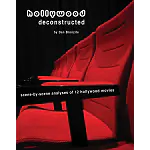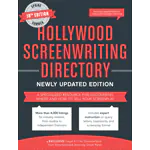Tag: movie writing
Script Studio® Launches Annual International Feature Screenwriting Contest
December 15, 2021 (London, UK) – UK technology company Nuvotech has launched its inaugural Script Studio® 2022 Feature Screenwriting Contest in the hope of discovering new international screenwriting talent.…
Writing the Perfect Ending
Yep, they can make it – and they can break it! In one fell swoop you have to tie-up any loose ends and satisfy an audience’s expectation. Not an…
Don’t Have Too Many Characters
When you’re planning your screenplay make sure you only include the characters you need in order to tell your story. It may sound like an obvious statement but many…



